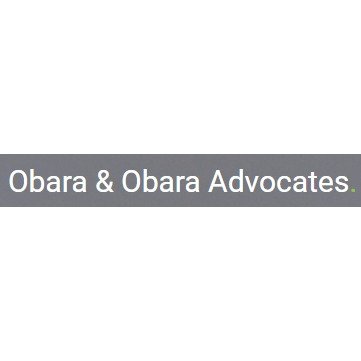Best Debt & Collection Lawyers in Kisumu
Share your needs with us, get contacted by law firms.
Free. Takes 2 min.
List of the best lawyers in Kisumu, Kenya
Kenya Debt & Collection Legal Articles
Browse our 1 legal article about Debt & Collection in Kenya written by expert lawyers.
- Debt Collection Agencies in Kenya: What You Need to Know
- As legal professionals, advising clients on debt matters or engaging third parties for recovery requires navigating a complex landscape. Concerns surrounding the methods and effectiveness of debt collection agencies in Kenya are common, alongside critical questions about compliance and ethical conduct within the debt recovery process in Kenya.In Kenya's dynamic... Read more →
About Debt & Collection Law in Kisumu, Kenya
In Kisumu, like the rest of Kenya, the laws governing debt collection are designed to protect both the debtor and the creditor. Kenya's legal landscape on debt collection primarily revolves around the Banking Act, the Auctioneer's Act, the Insolvency Act, and specific provisions in the Kenyan Constitution that ensure that even in the midst of debt collection, the dignity of the debtor is not infringed upon. Despite these frameworks in place, it's advised to seek professional legal support in cases of debt and collection disputes.
Why You May Need a Lawyer
Understanding the legal jargon related to debt collection can be quite overwhelming. Maybe your business is in debt, you've loaned a substantial amount of money to someone, or perhaps you're struggling to pay your bills. A lawyer can help you navigate any legal issues involved. Lawyers can assist with negotiating repayment plans, representing you in court if necessary, and ensuring your rights are protected throughout the debt recovery process. They can also assist in ensuring that the debt collection methods used by your creditors comply with the law.
Local Laws Overview
The key local laws regarding debt collection include the Banking Act, which governs the process for financial institutions, and the Civil Procedure Act, which guides the course of civil lawsuits in the Kenyan courts. The Insolvency Act provides the framework for handling cases of individual and corporate insolvency. The Auctioneer's Act governs the way assets may be seized and sold to repay debts. It's important to remember that the Kenyan Constitution guarantees certain fundamental human rights that cannot be violated, even in cases of debt collection.
Frequently Asked Questions
What can a lender legally do to recover their money?
Lenders can engage a lawyer or a debt collection agency to recover the money, and take legal action if necessary. However, this must all be done within the confines of the law - harassing the debtor, for instance, is not permitted.
Can a lender seize your property without a court order?
Usually, a lender requires a court order to seize a debtor's property. This depends, however, on the terms of the agreement between the debtor and the creditor.
What legal rights do I have as a debtor in Kisumu, Kenya?
As a debtor in Kenya, you have a right to be treated with dignity and not to be subjected to any kind of harassment. You are also entitled to due process of law.
Can I be sent to jail for not being able to pay my debts?
While you can't be sent to prison merely for not being able to pay a civil debt, failure to comply with a court order related to debt repayment might lead to a contempt of court charge, which could potentially result in incarceration.
What should I do if I'm served with a lawsuit for a debt?
If you're served with a lawsuit, it's important to respond by the specified deadline and to seek legal assistance immediately. Not responding could result in a default judgement against you.
Additional Resources
You can refer to the official websites of the Kenyan Judiciary, the Law Society of Kenya, and the Kenya Law Reports for more information. FIDA Kenya and Kituo Cha Sheria also offer free and low-cost legal services.
Next Steps
If you need legal assistance, your first step should be to consult with a professional. You can contact the Law Society of Kenya for a list of accredited lawyers in your area. It's important to gather all relevant documents, such as loan agreements or evidence of payment, and to clearly communicate your situation to your lawyer. Keep in mind that while the process may take time, it is important for you to understand your rights and the legislative process. Do not feel pressured into making any decisions without first seeking legal help.
Lawzana helps you find the best lawyers and law firms in Kisumu through a curated and pre-screened list of qualified legal professionals. Our platform offers rankings and detailed profiles of attorneys and law firms, allowing you to compare based on practice areas, including Debt & Collection, experience, and client feedback.
Each profile includes a description of the firm's areas of practice, client reviews, team members and partners, year of establishment, spoken languages, office locations, contact information, social media presence, and any published articles or resources. Most firms on our platform speak English and are experienced in both local and international legal matters.
Get a quote from top-rated law firms in Kisumu, Kenya — quickly, securely, and without unnecessary hassle.
Disclaimer:
The information provided on this page is for general informational purposes only and does not constitute legal advice. While we strive to ensure the accuracy and relevance of the content, legal information may change over time, and interpretations of the law can vary. You should always consult with a qualified legal professional for advice specific to your situation.
We disclaim all liability for actions taken or not taken based on the content of this page. If you believe any information is incorrect or outdated, please contact us, and we will review and update it where appropriate.









